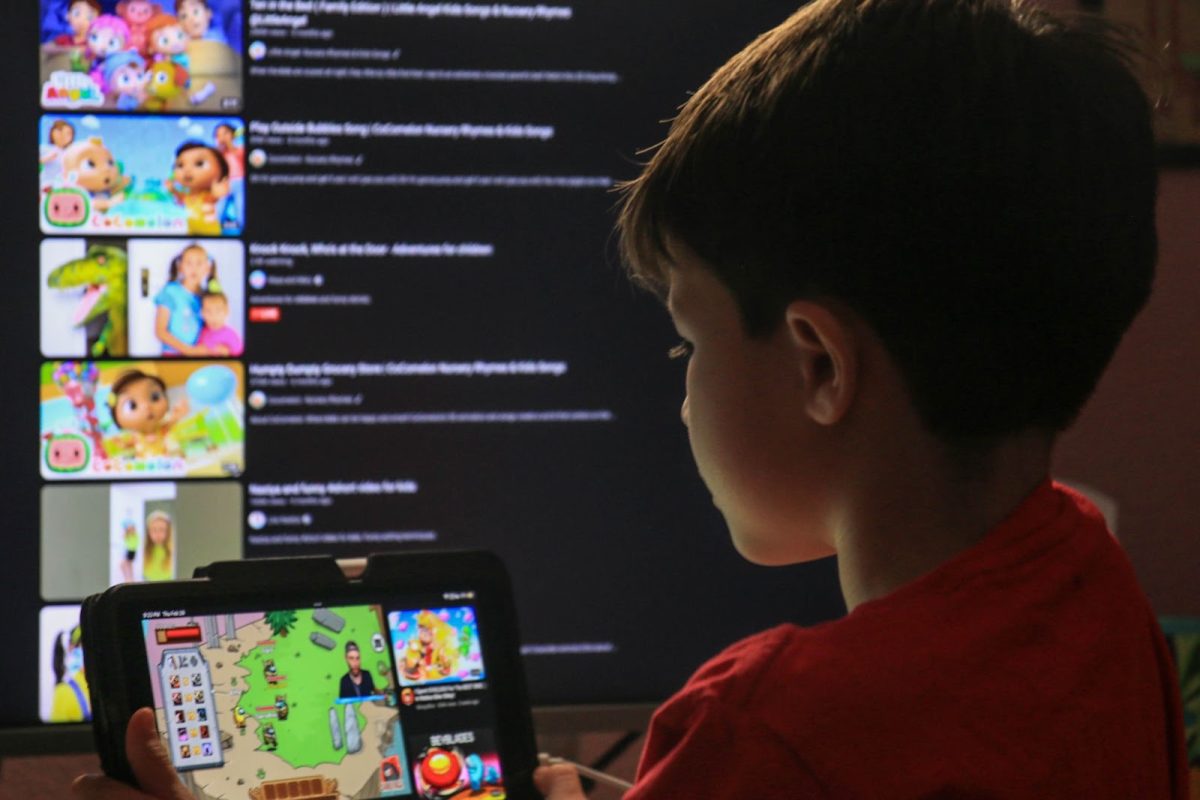It’s no question that lots of children are on the internet.
With the growing trend of parents handing their toddlers iPads with unrestricted access to the internet, a huge amount of Generation Alpha (Gen Alpha) is addicted to their devices. The internet is crowded with children, from little boys parroting their favorite “Alpha-male” podcaster to little girls obsessing over skincare and looking young.
When I was younger, I also had unrestricted internet access, but it looked much different. I didn’t chat with strangers on Omegle or watch brain-rotting “kid-friendly” content. Instead, I created multiple YouTube channels and played hacked Roblox games. My experience was tame, but that was only because the internet wasn’t as harmful to children back then as it is now.
“CoCoMelon” is one of the most popular examples of a kids show that Gen Alpha is addicted to, and it’s most likely no innocent mistake by the company. The show is overstimulating and fast-paced. Shows like these can cause young children to develop horrible attention spans and behavioral issues. The scenes change rapidly, so their focus stays locked on the show, and they get upset when they have to stop watching. Older kids shows such as “My Little Pony” and “Sesame Street” are slower paced and healthier for children’s minds to consume.
In recent years, teachers on social media have complained that Gen Alpha students are terribly behaved and have difficulty learning. Professionals and older generations point their finger toward technology overuse and bad parenting from millennials.
In 2023, reading and math scores dropped dramatically among 13-year-olds compared to the past decade. The younger a child is exposed to screen time, the lower their language skills are. These statistics are concerning, and reflect the lack of knowledge that many millennials have on the effects of technology overuse on their children. Assuming that a device can teach and develop a child like a human can is unwise, and this thought is shared among much of Generation Z (Gen Z).
Strangers on the internet can harm children, too. Unrestricted internet access allows kids to read or say whatever they want to anybody in the world; without learning internet safety, an unknowing 6-year-old can go on any website and tell a stranger their home address and full name. Acts like this can escalate to even worse situations for that child, and they would have no idea what they did was wrong.
Without any internet restrictions, a child has access to everything that’s online, good and bad. The bad includes sexual content and horrific gore videos, which would traumatize an underdeveloped mind.
Omegle was a popular website that ran from 2009 to 2023 where a user could turn on their camera and get paired with a stranger to video chat with. Lots of kids were on this website, along with a surplus of creeps. The reason Omegle shut down last year was because of a lawsuit regarding the facilitation of child sexual abuse. Though that website isn’t around anymore, other websites and apps still allow private chatting between strangers.
Every generation of children before Gen Z grew up without widespread internet access, so it does not make sense to have the new generations grow up on flashy, overstimulating devices with the knowledge of the world at their fingertips. Parents of young children need to take notes from the generations before them and raise their kids in real life, not through a screen.









